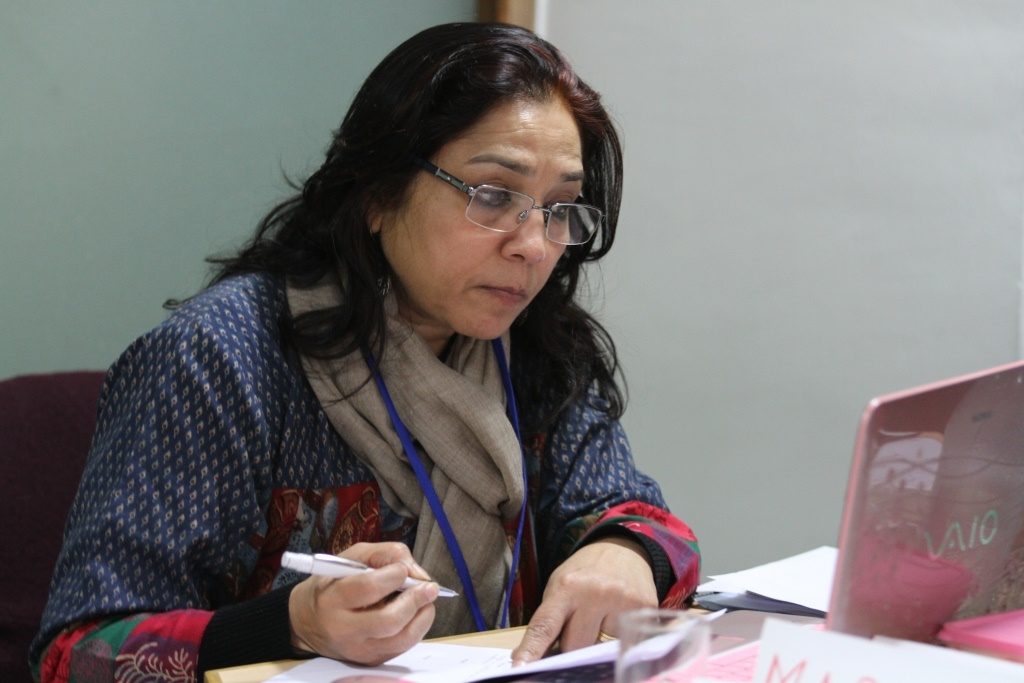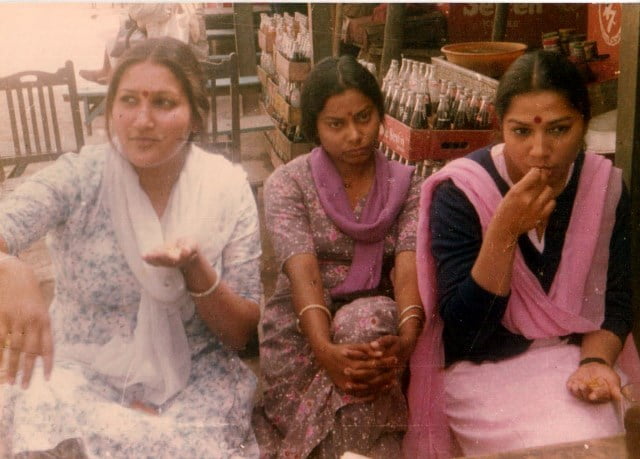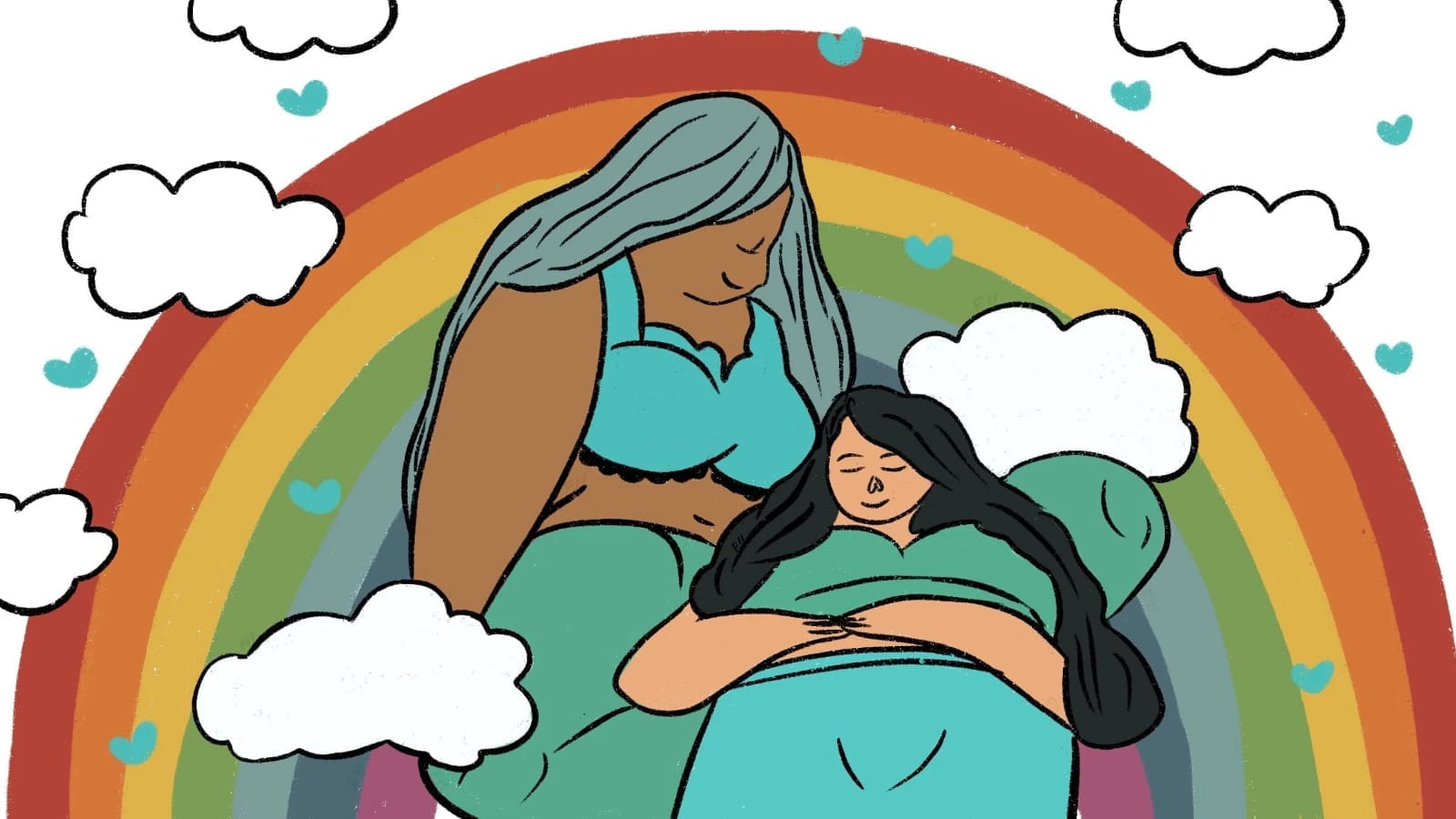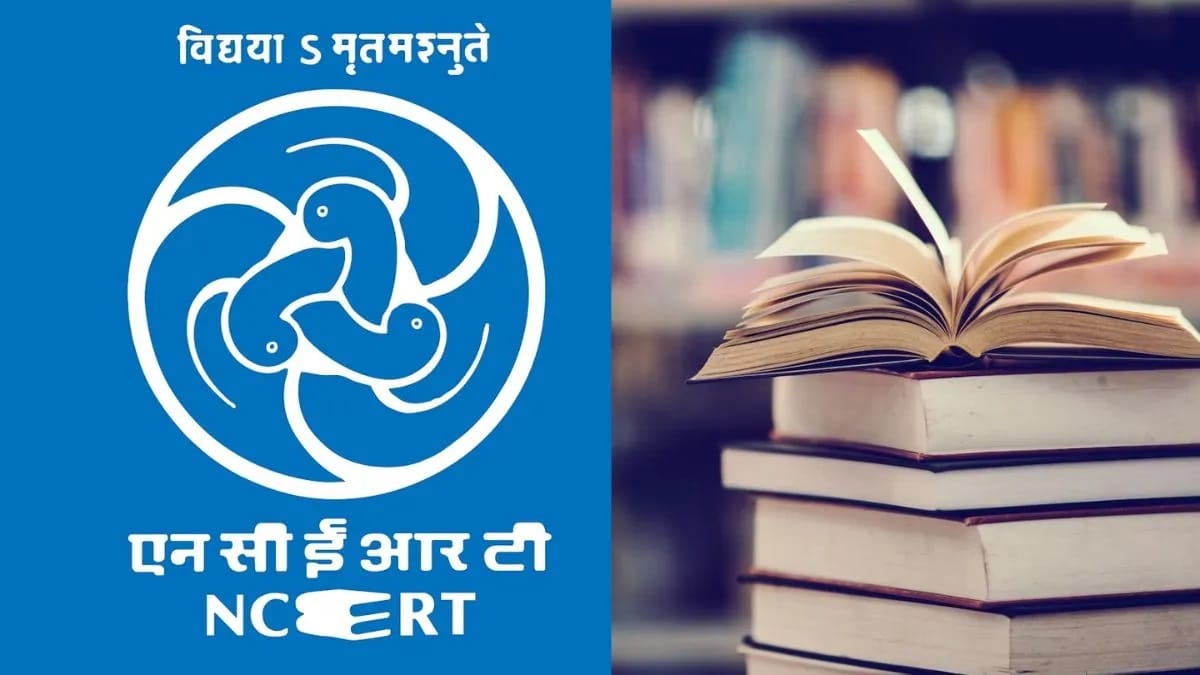This article is a part of the #IndianWomenInHistory campaign for Women’s History Month to remember the untold legacies of women who shaped India, especially India’s various feminist movements. One Indian woman is profiled each day for the whole of March 2019.
The woman known to have published the first ever book on sexual harassment in workplaces in India, Martha Farrell was a civil society leader, gender activist and educator.
In her professional endeavours, Farrell was considered a pioneer in more ways than one. She changed people’s approach to women empowerment, placing it more firmly in community participation and learning, while tirelessly endeavouring to make organisations view their structures and policies through the lens of gender. Her work surrounding sexual harassment at the workplace illuminated this obscured reality of women in the workplace, long before it received any legal acknowledgement. But to the people who knew her, Farrell was above all an ‘everyday feminist’, a woman whose feminist ideals permeated every aspect of her existence.

Revolutionising Empowerment
Born into an Anglo-Indian family, Martha Farrell studied English Literature
Mainstreaming Gender Mainstreaming
To Martha Farrell, gender was a reality that could not be divorced from the process enabling change in any domain. “If we want to bring about change, we will have to remove all those barriers which hold back the empowerment of women”, she once said while addressing the rural youth of Sonepat, Haryana. It was in 1996, after joining PRIA (Society for Participatory Research in Asia), founded by her husband Dr. Rajesh Tandon, that Farrell formalised her crusade for gender mainstreaming – the process of integrating the gender perspective in all organisational structures and policies. She trained thousands of panchayat women leaders, who in the wake of the 73rd Amendment Act, found themselves navigating leadership in a deeply patriarchal environment.
She believed in accountability – the accountability of all to bear responsibility for the state of gender dynamics in the country.
Despite her extensive work at the grassroots, Farrell actively advocated for bringing gender mainstreaming to the ‘mainstream’– in business, government and civil institutions alike. She believed in accountability – the accountability of all to bear responsibility for the state of gender dynamics in the country. She once said, “Why can’t girls stay out till late at night? Is it because girls lack something? If we were to keep all the men at home, and allowed our girls to walk out at night, would there be a problem? We must see where the fault lies. We must question everything”.
Combating Sexual Harassment at the Workplace
Martha Farrell was also famously known to have written the first Indian book on sexual harassment at workplaces in India – ‘Engendering the Workplace: Gender Discrimination & Prevention of Sexual Harassment in Organizations’, which was also the basis of her doctorate thesis. She was in many ways legions ahead of her time, placing a sexual harassment committee in PRIA long before any legislation on this matter was even formulated.
According to her colleagues, Farrell would place boxes in the women’s washrooms, in order to encourage women to file complaints anonymously. In fact, her crusade for gender mainstreaming in
Also read: Hansa Mehta: Reformer In Gender Justice And Education | #IndianWomenInHistory
Everyday Feminism
In the early 1980s, Martha Farrell was posted at a school as part of her work at Ankur. The school was to be visited by the Queen, and as per the principal’s instructions, the children were to appear in rags the next day, so as to magnify the benevolence of the school and win the Queen’s

In many ways, Martha Farrell was larger than life, but to a lot of people she was also simply Martha. Martha who loved to eat as much as she loved to cook, the Farrell household was renowned for always having an endless supply of delicious grub. She also had the unusual knack of delighting people with the most thoughtful gifts, while always lending a listening ear and unconditional support in one’s less delighted state.
But to the people who knew her, Farrell was above all an ‘everyday feminist’, a woman whose feminist ideals permeated every aspect of her existence.
To many people who knew her, Martha has been championed to be the ‘perfect woman’, but her colleague and lifelong friend Nandita Bhatt seemed to have an interesting insight into what Martha’s reaction would have been to this exaltation – “When I heard everyone talking about Martha being a perfect mother, sister, daughter, daughter-in-law, wife and a perfect woman – I knew she would have been screaming! I think she was the perfect human being. I carried her casket from the ambulance to the conference hall and carried her out of it – amidst the protests of our “typically” male colleagues. She would have been screaming at them then too, I know! I am proud that I could do that for her – and for all that she stood for”.
Her Legacy
While in Kabul for a gender training workshop, Martha Farrell was killed during a terrorist attack on her guesthouse, along with 14 other people. While her sudden and tragic death sent shockwaves through the nation, her family and friends were determined to keep her vision and work alive, setting up the Martha Farrell Foundation (MFF). The MFF continues Farrell’s pioneering work in gender mainstreaming and education, inching its way towards achieving her lifelong purpose of a gender-just society.
Martha Farrell left behind a rich legacy, with MFF immortalising her work, life and feminism. She was also posthumously honoured with a Lifetime Achievement Award by the Indian Social Work Congress for her extraordinary work in women’s empowerment and gender justice. But it seems as if Martha Farrell’s true legacy lies in a quieter but infinitely more powerful space – in the legion of feminists her work, passion and memory continues to inspire and honour. To her daughter, Tariqa, “My mother’s greatest gift to me was feminism. Her feminism”.
The MFF also instituted the Martha Farrell Award for Excellence in Women’s Empowerment to honour Farrell’s
Also read: Sudesh Vaid: Builder Of Bridges Between Academia And Activism | #IndianWomenInHistory
Rakhi Gope never met Martha Farrell. Yet today she says, “I will tell all the girls in my community of this feminist, Martha Farrell, and through her life inspire them to become feminists”. It looks like even 4 years after her death, Martha Farrell continues to retain her knack of giving the most thoughtful gifts.
References
1. Martha Farrell Foundation
2. PRIA
3. Youth Ki Awaaz
About the author(s)
Isha is an aspiring mental health counsellor, who’s trying to believe that activism and unconditional acceptance can exist side by side. She loves horror films and anything chocolate. She hates social media, but with further introspection she realizes she is afraid of developing the crushing need for validation that comes with it.




